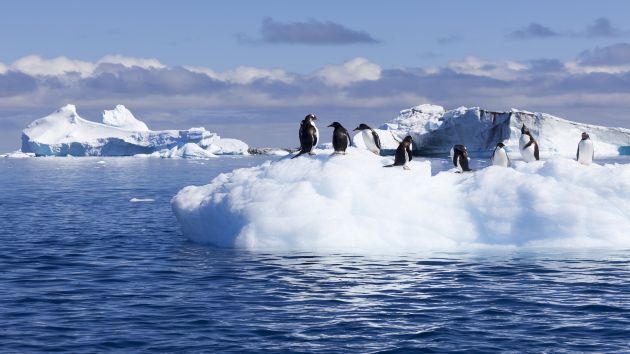Climate change is badly degrading coral reefs far from human settlements.
Cover photo-ARC Centre of Excellence for Coral Reef Studies / Terry Hughes
The outlook for the world’s coral reefs “keeps getting gloomier,” according to the authors of a new study which shows that reefs far from human settlements are no healthier than those in more densely populated areas. The study shows, say its authors, that climate change, not localized impacts associated with human population in coastal areas, is the primary driver behind global coral degradation.
That climate change is negatively affecting corals worldwide has not been in doubt. For example, last October, NOAA declared that the third-ever global coral bleaching event was underway following record ocean temperatures. (It’s worth noting that the previous two such events took place as recently as 1998 and 2010.) On Monday, scientists announced that this bleaching event is set to stretch into a third year; in some areas, the bleaching event has lasted so long that reefs have been beset by bleaching twice and could be in for their third go-round this summer and fall.
However, researchers had generally assumed that the impacts of a changing climate were, for many reefs, to this point secondary to localized impacts from human activity, such as overfishing or sedimentation. Accordingly, while climate change might be expected to affect corals around the world, it stood to reason that corals more isolated from human settlements would be healthier than those in populated areas.
The new study shows that that’s not the case.
By way of testing the hypothesis, John Bruno of the University of North Carolina, and Abel Valdivia, a former UNC graduate assistant who is now a research scientist at the Center for Biological Diversity, examined a database of more than 1,700 coral reef surveys from the Bahamas to Australia, collected from 1996 to 2006. They wanted to see whether isolated reefs had more living coral and less seaweed, a sign of reef health. Surprisingly, they didn’t. Isolated coral reefs many miles away from any human residents are in no better shape than reefs adjacent to large urban centers, they wrote in the journal Scientific Reports on Wednesday.
“We often mythologize isolated coral reefs as pristine and safe from harm,” said Bruno. “In fact, coral loss on some of our isolated reefs is just as dramatic as coral decline on reefs adjacent to more densely populated islands.”
“Widespread arguments that coral reef degradation is mostly caused by local factors are unsupported. We found the problem is better explained by global impacts such as climate change,” said Valdivia. “To save coral reefs, we need to reduce our overreliance on fossil fuels and lead global efforts to swiftly and drastically cut carbon emissions in the coming decades. Local management alone won’t cut it.”
The findings potentially have some highly significant policy implications, Bruno told Discovery News. Many coral protection efforts have been predicated on the notion that reducing fishing and other local impacts is not only worthwhile on its own merits but also helps reefs remain more resilient to the impacts of warming. While he and Valdivia state that “there is adequate evidence in many locations to justify continued mitigation of small-scale stressors like overfishing and pollution,” the overall findings of their study suggest that at least in some cases, such management efforts are powerless to resist the march of a warming climate. By way of example, he pointed to the Great Barrier Reef — one of the world’s most isolated and well-protected reefs — which has been devastated by bleaching this year.
Indeed, it’s possible that some local stressors may actually mitigate against climate impacts instead of magnifying them. One possible example, suggests Bruno, is that local sediment cover can, by reducing sunlight, eliminate one of the principal triggers of bleaching; another is that less robust coral species that are eliminated from reefs by local impacts may be replaced by species that are more resilient to warming.
But if such issues are complex and open to debate, the principal take home message of the study is not, Bruno underlined.
“This just shows the incredible impact we are having, that these long-predicted climate impacts are happening now,” he said. “This is a sign we need to take action; we knew we needed to take action twenty, thirty years ago, but the scale of what is happening now is incredible. It’s scary.”






